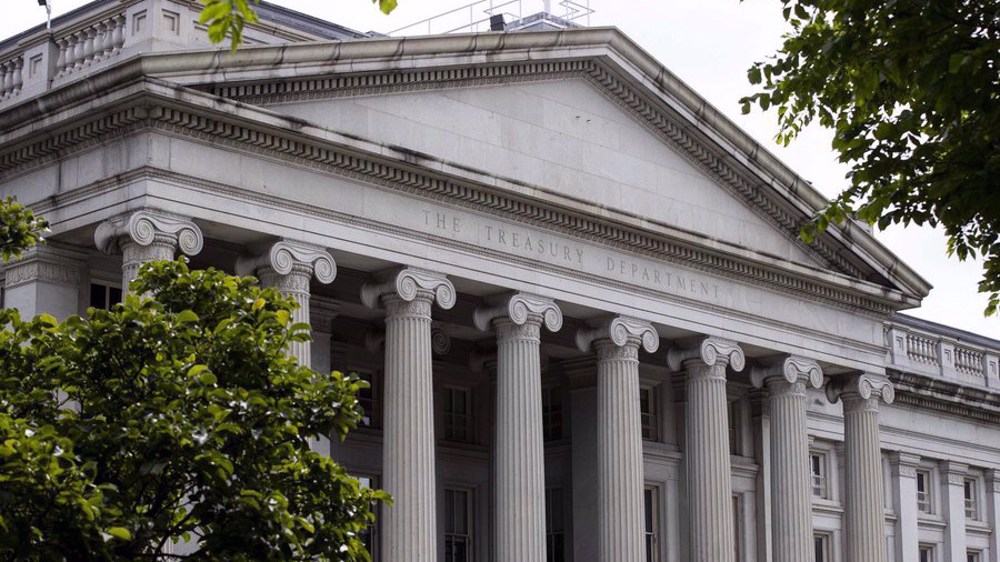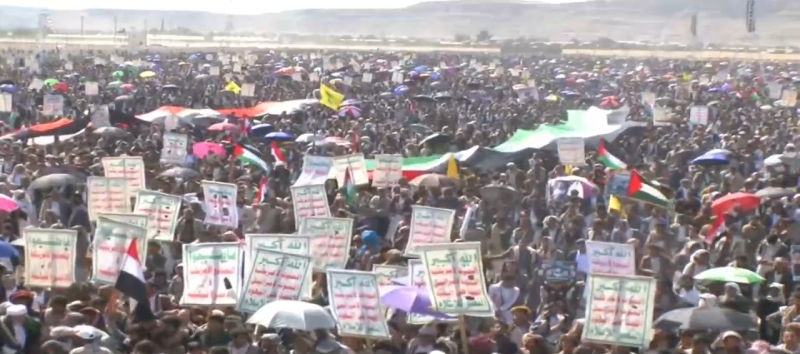US Treasury imposes sanctions on Yemeni, Syrian individuals, entities
The US Department of the Treasury has imposed sanctions on a network that it said is financially helping Yemen's popular Ansarullah resistance movement, also called the Houthi movement.
"This network generates tens of millions of dollars in revenue from the sale of commodities, like Iranian petroleum, a significant portion of which is then directed through a complex network of intermediaries and exchange houses in multiple countries to the Houthis," a Treasury statement said on Thursday.
The Treasury imposed sanctions on two Yemenis, two Syrians, one Emirati, one Somali and one Indian national, as well as entities based in Dubai, Istanbul and Yemen's capital, Sana’a, which Washington said is controlled by the Houthi movement, which is leading a resistance campaign against the Saudi-led aggression against Yemen.
“This network’s financial support enables the Houthis’ deplorable attacks threatening civilian and critical infrastructure in Yemen and Saudi Arabia. These attacks undermine efforts to bring the conflict to an end and, most tragically, starve tens of millions of innocent civilians,” said Director of the Office of Foreign Assets Control of the US Treasury Andrea M. Gacki.
The Treasury statement, however, failed to mention Washington’s role in the war of aggression against the people of Yemen which has left hundreds of thousands of Yemeni civilians, including women and children, dead and millions more impoverished.
Backed by the United States, the Saudi-led war was launched in March 2015.
The US increased its arms support to the members of the Saudi-led coalition after they launched the war, including by providing them with surgical ammunition that has been used amply to butcher Yemeni civilians.
The invaders have, however, failed to achieve their objective of war, which was defeating the Houthi movement and reinstalling a Riyadh-government in Sana’a, despite all the support they have received from the US and their Western allies.
Meanwhile, Yemeni armed forces and allied Popular Committees have gone from strength to strength against the Saudi-led invaders, and left Riyadh and its allies bogged down in the country.
In parallel with Yemen’s gain, there have been growing calls for a ceasefire from the US and its allies. Saudi Arabia even presented a truce plan a few months ago, which was rejected by the Yemenis, who said the plan does not meet the interests of the country.
Iran among top nuclear technology countries: AEOI chief
Democrats 'risk losing' election for backing Israeli war on Gaza, Lebanon: US journalist
Protesters remove busts of Israel's first president from Manchester Univ.
VIDEO | Hezbollah drones
US involvement in Israel’s 'regional war' unconstitutional, lawmakers tell Biden
107 years of Balfour Declaration that paved way for extermination of Palestinians
Hezbollah strikes Israeli military base near Tel Aviv
Palestinian media rights group condemns killing of two journalists by Israel











 This makes it easy to access the Press TV website
This makes it easy to access the Press TV website